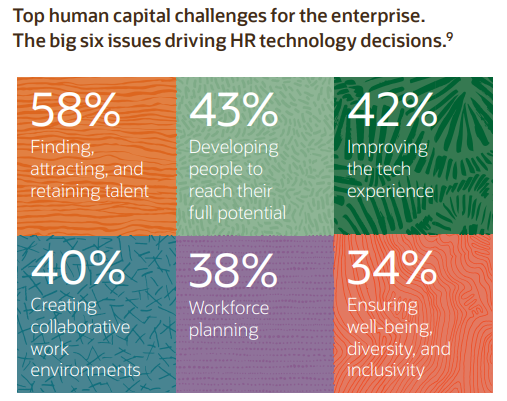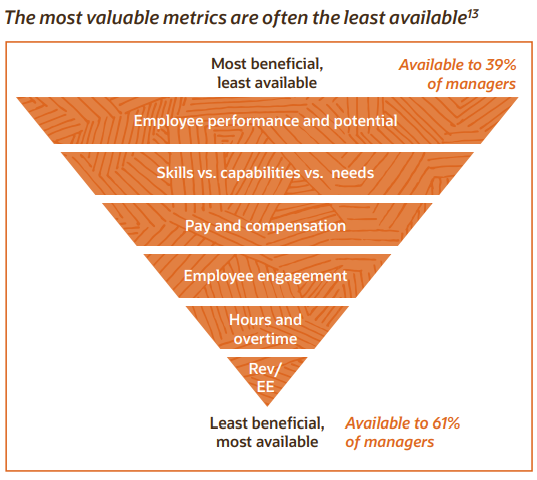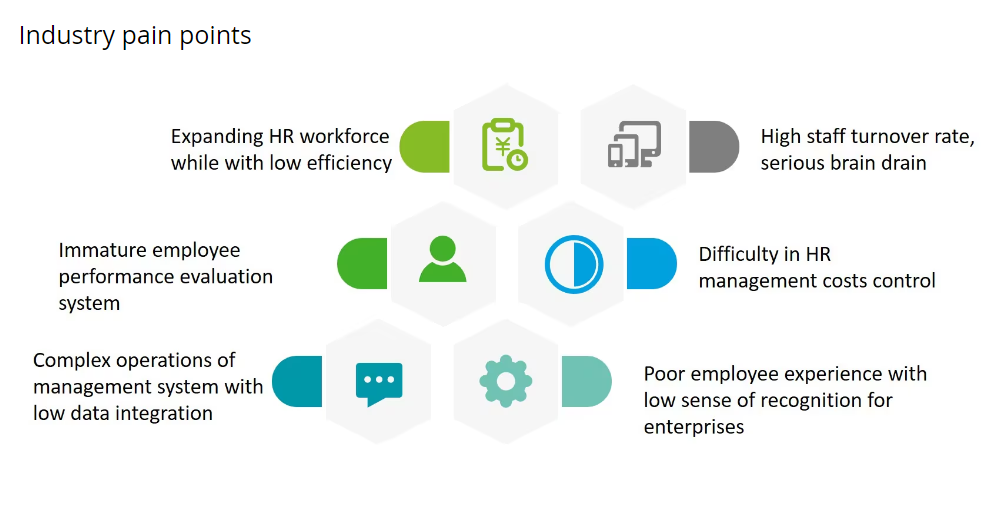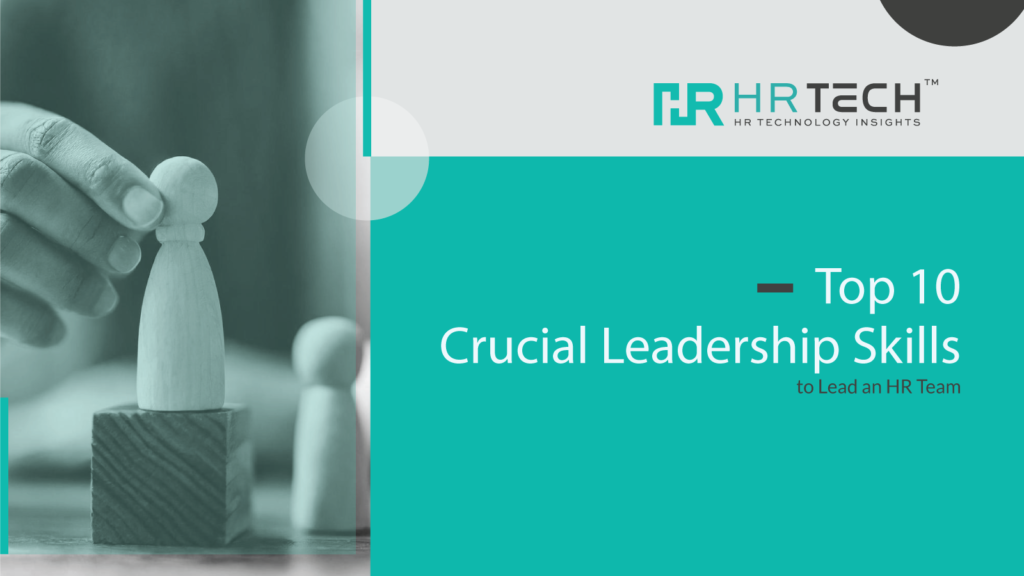Introduction
In today’s ever-evolving work culture, diverse workplaces have developed from simple term to a crucial component of corporate success. HR professionals need to boost their skills to succeed in their roles. A certain set of skills will help HR lead an HR team effectively. This skill set includes soft, role-specific, and digital business acumen and data literacy skills. But what set of skills will enhance the work efficiency of HR?
In today’s dynamic professional world, diversity is no longer just a buzzword; it’s a crucial factor in organizational success. Diverse workplaces, where people from various backgrounds and perspectives come together, create a welcoming environment where everyone feels valued.
When teams are composed of individuals with diverse skills and experiences, they become powerful forces for innovation and problem-solving. Effective leadership is essential in fostering such a collaborative environment. Leaders can unlock new opportunities and drive organizational growth by bringing together people with different ideas and approaches.
Visit HR Tech Blogs: Top 10 HR Challenges in Managing Employees Globally Using HR Technology
But what skills are necessary to lead a diverse workforce effectively?
10 Crucial Leadership Skills to Lead HR Team

1. Communication
Communication is the key. Effective leadership hinges on strong communication. Leaders can drive success by clearly expressing ideas, building trust, and inspiring teams towards shared goals. Effective communication involves:
Active Listening: Go beyond simply hearing your team members and actively engage with their perspectives. This helps you gain insights, build trust, and create a supportive environment where everyone feels valued.
Clear and Concise Verbal Communication: Use simple, straightforward language to convey your thoughts effectively. Avoid jargon or complex terms that may confuse your team.
Powerful Written Communication: Carefully craft well-structured, clear, concise written messages, such as emails, reports, or presentations. This ensures everyone is aligned and expectations are understood.
2. Administrative Expertise
Even as technology and HR automation evolve, administrative tasks are a significant component of HR roles. These duties encompass managing employee leave, absences, payroll, benefits, and other administrative matters. Developing strong administrative skills can be a valuable asset for aspiring HR professionals. Proficiency in these areas demonstrates attention to detail, organizational abilities, and a solid understanding of HR processes.
3. Emotional Intelligence
While technical skills and strategic thinking are essential, emotional intelligence and leadership skills are what truly distinguish exceptional leaders. These skills foster effective communication, build strong relationships, and navigate the complexities of human interactions to drive organizational success.
Self-Awareness: Leaders who understand their emotions, strengths, and weaknesses can effectively manage themselves. This self-knowledge enables informed decision-making and helps regulate responses. Empathy: Great leaders create a sense of empathy, understanding the perspectives and feelings of others. This fosters an environment where everyone feels heard, valued, and appreciated.
Social Awareness: Effective leaders consider the broader context, including cultural, political, and economic factors that impact their organization. This understanding allows them to make informed decisions that benefit their team and the wider community.

4. Ethical Standards
HR leader’s career needs appropriate communication with groups and individuals during the company transition. This becomes true when the changes have a significant impact on the organization and employees. Sunnie Giles found that 67% of global companies ranked “high ethical standards” as the most important leadership quality, while 56% ranked “communicating clear expectations.” These qualities are crucial for creating a safe and trusting environment for employees. HR leaders with high ethical standards demonstrate their commitment to fairness. Clear communication is also essential, as it helps employees feel secure and understand what is expected of them.
Visit HR Tech Blog: 10 Ways AI will Reduce the HRs Workload
5. HR Strategy Creation & Execution
HR professionals should adopt a strategic perspective. Even if you aren’t directly involved in creating HR strategy, understanding the organization’s strategic goals and translating them into actionable plans is essential. The ability to interpret and implement an HR strategy that aligns with the overall organizational strategy enables HR professionals to make a greater impact and solidify HR’s role as a strategic partner. In big companies, the leader needs to have visionary thinking. They set clear goals, measure progress, and hold the organization accountable, leading to shared success.
6. Setting Priorities
Irrespective of how valuable or important an HR initiative or a project is, there is a huge chance that your stakeholders might have varied opinions, motives, and priorities. Managing all the conflicting ideas and priorities among stakeholder groups and resolving the complexity will help HR avoid potential project pitfalls, and gain the information and support one needs to make the project a great success.
To effectively manage stakeholder expectations and ensure project success, HR professionals should engage in active listening and open communication. By understanding the perspectives and concerns of various stakeholders, HR can identify common ground, address potential conflicts proactively, and build strong relationships. Additionally, creating a clear and transparent communication plan can help keep stakeholders informed throughout the project’s lifecycle, fostering trust and support.
7. Recruitment & Selection
A report by PwC says that 58% of HR leaders believe that searching, attracting, and retaining talent stands on their number one challenge. Thus, finding qualified candidates, selecting the right one among them, and determining if there’s a match between the company, the candidate, and the manager is one of the major HR tasks. That is the reason why developing recruiting skills such as negotiation, communication, collaboration, and relationship building is vital for HR leaders. The interview process is a significant part of recruitment and selection, making active listening an indispensable part.

8. Command Over Technology
In today’s rapidly evolving business landscape, HR leaders are increasingly expected to be strategic partners who drive organizational success. To effectively fulfill this role, a deep understanding of technology is essential. Here’s why:
- Informed Insights: Technology enables HR leaders to access and analyze vast amounts of data, providing valuable insights into workforce trends, employee engagement, and performance.
- Strategic Planning: By leveraging data analytics, HR can identify areas for improvement, optimize resource allocation, and make informed decisions that align with the organization’s overall strategy.
- Automation: HR technology can automate routine tasks, such as payroll processing, employee onboarding, and performance reviews, freeing up HR professionals to focus on more strategic initiatives.
- Streamlined Processes: By implementing efficient HR systems, organizations can reduce administrative overhead and improve overall productivity.
- Self-Service: Technology can empower employees to access HR information and complete tasks independently, improving their overall experience.
- Personalized Development: HR leaders can use technology to deliver personalized training and development opportunities, fostering employee engagement and satisfaction.
Visit HR Tech Blog: 7 Best AI-powered Employee Listening Features for HR Teams
9. Being Analytical & Data-driven
Today’s world is completely data-driven, and HR leaders with strong analytical skills and a data-driven mindset are increasingly valuable to organizations. By leveraging data to inform decision-making, HR can optimize processes, improve employee experiences, and contribute significantly to organizational success.
Key benefits of being analytical and data-driven as an HR leader include:
- Evidence-Based Decision Making: Analytical HR leaders can use data to support their recommendations and decisions, rather than relying solely on intuition or assumptions. This approach enhances credibility and fosters trust among stakeholders.
- Improved Efficiency and Effectiveness: By analyzing data, HR can identify areas for improvement, optimize processes, and allocate resources more effectively. This can increase efficiency, reduce costs, and improve overall performance.
- Enhanced Employee Engagement: HR can use data to understand employee needs, preferences, and satisfaction levels. This information can be used to develop targeted initiatives that improve employee engagement and retention.
10. Cultural awareness & Sensitivity

These HR skills vary as per the organization. Especially when it comes to multinational companies, cultural awareness, and sensitivity are a must, as it is a crucial part when communicating with managers and employees of different cultures and countries. These qualities will make an impact on your hiring, re-hiring, retaining, and navigating employee relations. There are communication differences concerning employee evaluation. Being culturally sensitive means recognizing and understanding cultural differences. If an employee lacks cultural sensitivity, it may display a poor image of the organization.
Conclusion
Effective HR leadership requires a delicate balance of technical expertise, interpersonal skills, and strategic vision. By cultivating these top 10 crucial leadership skills, HR professionals can foster a positive work environment, drive organizational success, and empower their teams to reach their full potential. Remember, leadership is not just about titles or authority; it’s about inspiring and guiding others towards a shared goal. Since HRs are the face of the organization, they need to be very hands-on with all these skills to make their company grow continuously.
To share your insights, please write to us at news@intentamplify.com



